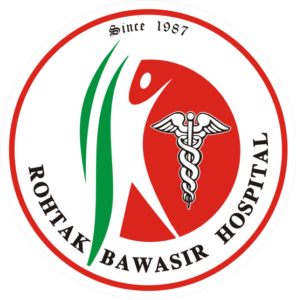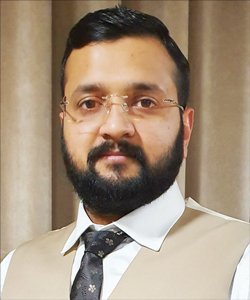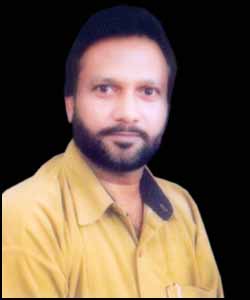Why Are Do’s and Don’ts Important During Piles?


Updated on: 4th Jun 2024
Introduction
Hemorrhoids, or piles, are enlarged veins in the lower rectum and anus that can be painful and bleeding. Effective management and recovery of piles depend on an understanding of the dos and don’ts. The top piles physician in Rohtak, Dr. Raj Kumar, offers insightful consultations at the Rohtak Bawasir Hospital for individuals in need of professional guidance and care. This blog will discuss the importance of following certain rules and how doing so can greatly enhance your health.
Understanding Piles
Before diving into self-help remedies, it’s important to understand what piles are and what causes them. Both internal and exterior piles are possible (within the rectum) (under the skin around the anus). Typical signs and symptoms include of:
- Pain or discomfort, especially during bowel movements
- Itching or irritation around the anal region
- Swelling around the anus
- Bleeding during bowel movements
Prolonged sitting, a low-fiber diet, obesity, straining during bowel movements, and persistent constipation are all factors that might lead to the formation of piles.
The Importance of Dos and Don’ts

- Preventing Complications: Taking the appropriate precautions can stop piles from getting worse. Ignoring symptoms or engaging in unhealthy behaviors can result in serious side effects including prolapsed or thrombosed piles, which may need more extensive medical care.
- Promoting Healing: Adequate attention and lifestyle modifications can expedite the healing process. Modest dietary adjustments and good hygiene practices can reduce symptoms and hasten healing.
- Reducing Recurrence: You can drastically lower the likelihood that piles will reoccur by following preventive actions. Long-term relief depends on knowing what causes piles and avoiding these triggers.
- Minimizing Discomfort: Following advised procedures can reduce pain and enhance your quality of life. Effective symptom management enables you to carry on with everyday tasks without experiencing any major disruptions.
Do's for Managing Piles

- Seek Professional Help Early: Speak with a piles specialist is the first and most important step. Early intervention is emphasized by Dr. Raj Kumar, who is renowned for offering the best piles treatment in Delhi. A speedier recovery and prevention of the condition’s progression are possible with early identification and treatment.
- Maintain a High-Fiber Diet: A high-fiber diet is necessary to avoid constipation and soften feces. To encourage regular bowel movements and lessen straining, include fruits, vegetables, whole grains, and legumes in your diet.
- Stay Hydrated: Maintaining soft stools makes bowel motions easier and less uncomfortable. Drinking lots of water helps with this. Try to drink eight glasses of water or more each day to maintain a healthy digestive tract.
- Exercise Regularly: Constipation is avoided and bowel function is stimulated by exercise. Engaging in physical activities such as yoga, swimming, and walking can help maintain an active digestive tract and lower the chance of piles.
- Practice Good Hygiene: It’s important to keep the anal region dry and clean. To avoid irritation and illness, use unscented wipes or wash with warm water after having bowel movements.
- Use Over-the-Counter Remedies: Many over-the-counter lotions and ointments are available to treat the symptoms of piles. These can offer momentary solace from itchiness, discomfort, and edema.
- Follow a Consistent Bowel Routine: Constipation can be avoided and the pressure on your rectal veins can be decreased by establishing a regular bowel habit. When the urge to urinate strikes, act quickly to prevent the stool from becoming firm.
Don’ts for Managing Piles

- Avoid Straining During Bowel Movements: Straining might exacerbate piles by putting more strain on the rectum’s veins. While having bowel motions, relax and take your time.
- Don’t Ignore Symptoms: Ignoring the signs of piles might have negative consequences. The greatest piles doctor in Rohtak, Dr. Raj Kumar, can provide you with expert assistance if you are experiencing ongoing pain, bleeding, or discomfort.
- Refrain from Heavy Lifting: Lifting large things puts more strain on the abdomen and can make piles worse. To reduce strain, try to avoid heavy lifting or utilize the right techniques.
- Avoid Prolonged Sitting or Standing: Prolonged standing or sitting might make heaps worse. If your profession requires you to stand or sit for extended periods of time, take regular breaks to stretch and get some air.
- Limit Intake of Processed Foods: Because processed foods frequently contain little fiber, they may cause constipation. Reduce your intake of frozen dinners, quick food, and sugar- and fat-laden snacks.
- Don’t Use Dry Toilet Paper: The delicate anal region may become irritated when using dry toilet paper. After bowel motions, use moist wipes or a warm water rinse.
- Avoid Caffeine and Alcohol: Caffeine and alcohol have the potential to cause constipation and dehydration. Reducing their consumption can facilitate easier bowel movements and preserve soft stools.
Expert Care at Rohtak Bawasir Hospital
Dr. Raj Kumar provides extensive non-surgical treatment options for piles at Sushruta Anorectal Institute. His method emphasizes individualized treatment while utilizing cutting-edge methods and Ayurvedic concepts to guarantee efficient relief without the need for invasive treatments.
- Kshar Sutra Therapy: Medicated thread is used to cure piles in this Ayurvedic remedy. It is a less invasive process that efficiently shrinks heaps and speeds up the healing process.
- Infrared Coagulation (IRC): Infrared radiation is used in IRC, a non-surgical technique, to coagulate the blood vessels supplying the piles, causing them to contract and recede.
- Rubber Band Ligation: In order to stop the pile’s blood supply, a little rubber band must be wrapped around its base. Eventually, the pile comes down, relieving the symptoms.
- Sclerotherapy: By injecting a solution into the piles, sclerosing and eventually eliminating them, is the goal of sclerosing therapy.
The greatest option for treating piles in Delhi is Dr. Raj Kumar because of his experience and commitment to patient care. His non-surgical method guarantees little discomfort and a speedy recuperation, enabling patients to quickly resume their regular life.
Meet Our Specialists

Dr. Raj Kumar Garg (B.A.M.S.)
40+ Years of Experience

Dr. Rahul Garg (B.A.M.S.)
15+ Years of Experience
Conclusion
Adherence to particular dos and don’ts together with expert medical treatment are necessary for effective pile management. Recognizing the significance of these recommendations will help to avoid problems, accelerate recovery, and lower the risk of recurrence. Dr. Raj Kumar at Rohtak Bawasir Hospital provides skilled care and cutting-edge non-surgical alternatives for people looking for the best piles treatment in Delhi.
You can effectively manage piles and enhance your quality of life by adhering to these expert-recommended techniques and getting timely medical attention. Avoid letting piles interfere with your everyday activities by being proactive and speaking with Dr. Raj Kumar to start the healing process.

